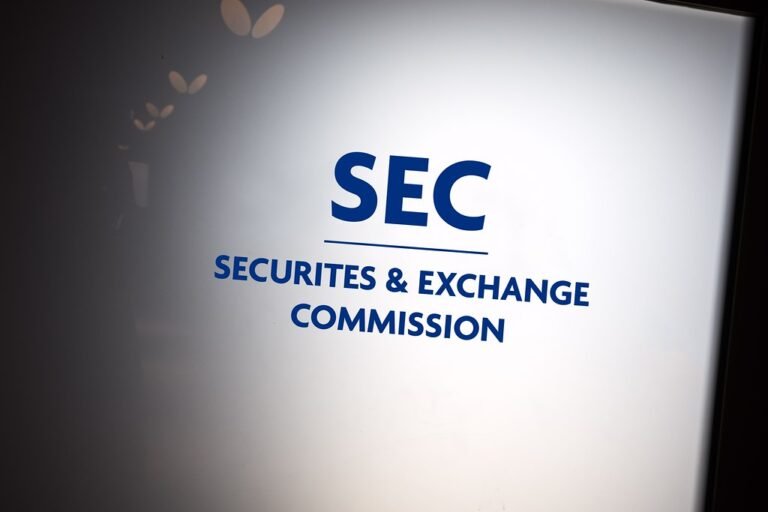
The U.S. Securities and Exchange Commission (SEC) today announced charges against three senior executives of two major Indian energy companies, Adani Green Energy Ltd. and Azure Power Global Ltd., for their involvement in a massive bribery scheme designed to secure above-market energy contracts from the Indian government. According to the SEC, the scheme resulted in false and misleading statements to U.S. investors, including the sale of bonds by Adani Green Energy and the trading of Azure Power’s stock on the New York Stock Exchange.
The SEC’s complaints, filed in the U.S. District Court for the Eastern District of New York, center on actions taken by Gautam Adani, Chairman of Adani Green Energy Ltd. (AGEL), his nephew Sagar Adani, an executive director at AGEL, and Cyril Cabanes, a former board member of Azure Power. The charges stem from their roles in a bribery operation that allegedly involved paying millions of dollars in bribes to Indian government officials in exchange for favorable contracts related to solar energy projects.
The Bribery Scheme: A Multi-Billion Dollar Deal
The SEC’s complaint outlines how the executives orchestrated a scheme to manipulate the Indian government’s purchase of renewable energy at inflated prices, benefiting both Adani Green and Azure Power. As part of the alleged conspiracy, Gautam and Sagar Adani facilitated the payment of bribes to ensure the companies would win contracts and secure long-term energy deals.
The bribery scheme was reportedly in full swing during a key financial transaction in September 2021, when Adani Green Energy raised $750 million in a note offering. Of that amount, approximately $175 million came from U.S. investors. During this offering, Adani Green provided misleading statements in its offering materials, claiming that the company adhered to anti-corruption and anti-bribery policies. According to the SEC, these statements were false and failed to disclose the ongoing bribery activity led by the Adanis.
The SEC further alleges that these actions were part of a broader scheme that benefited both Adani Green Energy and Azure Power, which had been awarded a multi-billion-dollar solar energy project by the Indian government. As the companies stood to gain significantly from the inflated energy contracts, they allegedly misled investors, including those in the U.S., about their business practices and the integrity of their operations.
Allegations Against Cyril Cabanes
In addition to the charges against Gautam and Sagar Adani, the SEC has filed charges against Cyril Cabanes, a former member of the board of Azure Power. Cabanes, according to the SEC, played a crucial role in facilitating the bribery scheme. The commission alleges that Cabanes authorized the bribes while serving as a director of Azure Power, both in the United States and abroad. The charges against Cabanes include violations of the Foreign Corrupt Practices Act (FCPA), which governs U.S. companies’ conduct overseas, particularly in relation to bribery and corruption.
Impact on Investors and Market Confidence
The SEC’s investigation follows a tumultuous year for the Adani Group, which has faced intense scrutiny following allegations made by Hindenburg Research in early 2023. Hindenburg, a U.S.-based short-seller, accused the Adani Group of stock manipulation, accounting fraud, and the use of shell companies to artificially inflate the value of its publicly traded entities.
These allegations, which Gautam Adani has vehemently denied, sparked a massive sell-off in Adani Group stocks, wiping out over $145 billion in market value. The SEC’s latest charges have only added to the pressure on the Adani Group, which continues to fight to regain investor confidence.
SEC’s Commitment to Holding Corporate Executives Accountable
Commenting on the charges, Sanjay Wadhwa, Acting Director of the SEC’s Division of Enforcement, emphasized the commission’s commitment to holding senior corporate executives accountable for corrupt practices. “As alleged, Gautam and Sagar Adani induced U.S. investors to buy Adani Green bonds through an offering process that misrepresented not only that Adani Green had a robust anti-bribery compliance program but also that the company’s senior management had not and would not pay or promise to pay bribes,” said Wadhwa. “We will continue to vigorously pursue and hold individuals, including senior corporate officers and directors, accountable when they violate our securities laws.”
Legal Action and Potential Penalties
The SEC’s complaint against Gautam and Sagar Adani charges them with violating the antifraud provisions of federal securities laws. The commission is seeking permanent injunctions, civil penalties, and officer and director bars, which could effectively ban the Adanis from holding leadership positions in public companies.
Meanwhile, the SEC’s complaint against Cyril Cabanes seeks similar penalties, including a permanent injunction and a civil penalty. The case represents a significant step in the SEC’s broader efforts to combat corporate corruption and safeguard U.S. investors from misleading financial practices.
As the investigation continues, the impact of these charges on both Adani Green Energy and Azure Power remains to be seen, with both companies now facing increased scrutiny from regulators, investors, and the global financial community.
For further updates on this developing story, stay tuned to our news channels.



